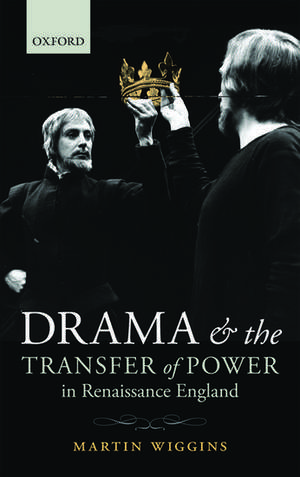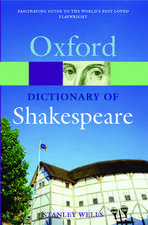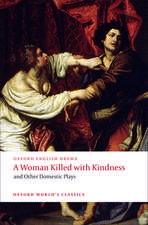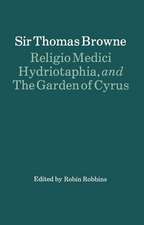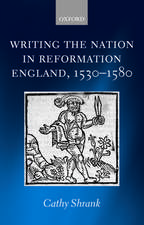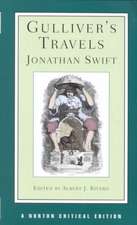Drama and the Transfer of Power in Renaissance England
Autor Martin Wigginsen Limba Engleză Hardback – aug 2012
Preț: 814.55 lei
Preț vechi: 1174.74 lei
-31% Nou
Puncte Express: 1222
Preț estimativ în valută:
155.88€ • 169.27$ • 130.94£
155.88€ • 169.27$ • 130.94£
Carte tipărită la comandă
Livrare economică 11-17 aprilie
Preluare comenzi: 021 569.72.76
Specificații
ISBN-13: 9780199650590
ISBN-10: 0199650594
Pagini: 164
Ilustrații: One map
Dimensiuni: 151 x 222 x 16 mm
Greutate: 0.35 kg
Ediția:New.
Editura: OUP OXFORD
Colecția OUP Oxford
Locul publicării:Oxford, United Kingdom
ISBN-10: 0199650594
Pagini: 164
Ilustrații: One map
Dimensiuni: 151 x 222 x 16 mm
Greutate: 0.35 kg
Ediția:New.
Editura: OUP OXFORD
Colecția OUP Oxford
Locul publicării:Oxford, United Kingdom
Recenzii
Much of the book is arcane literary detective work but no less fascinating for that, extending our sense of what constituted drama in Renaissance England, and how it could be used to massage public opinion as power shifted from one regime to another.
The author presents impressive archival details of little-known ceremonies, processions, and semi-theatrical events through which rulers and subjects negotiated power relationships.
Wigginss study Drama and the Transfer of Power, meanwhile, is an example of how the catalogues wealth of information might be exploited ... Wiggins shows how much we can learn about shows for which there is no surviving text by piecing together information about their physical construction, the reactions of spectators and the immediate political context.
A simulating and enlightening study of works that the author has brought back into the light.
Drama and the Transfer of Power is a genuine contribution to our understanding of how theatrical performances were used as platforms for and instruments of early modern politics ... a timely reminder of how deeply drama and monarchy were intertwined in the early modern period.
expansive in its implications ... Wiggins's exacting reconstructions of the political context and epistemological status of these and other courtly performances correct the fieldâs bias toward both Shakespeare and the public theater while asking us to rethink drama as a category.
The author presents impressive archival details of little-known ceremonies, processions, and semi-theatrical events through which rulers and subjects negotiated power relationships.
Wigginss study Drama and the Transfer of Power, meanwhile, is an example of how the catalogues wealth of information might be exploited ... Wiggins shows how much we can learn about shows for which there is no surviving text by piecing together information about their physical construction, the reactions of spectators and the immediate political context.
A simulating and enlightening study of works that the author has brought back into the light.
Drama and the Transfer of Power is a genuine contribution to our understanding of how theatrical performances were used as platforms for and instruments of early modern politics ... a timely reminder of how deeply drama and monarchy were intertwined in the early modern period.
expansive in its implications ... Wiggins's exacting reconstructions of the political context and epistemological status of these and other courtly performances correct the fieldâs bias toward both Shakespeare and the public theater while asking us to rethink drama as a category.
Notă biografică
Martin Wiggins is Senior Lecturer and Fellow, and Tutor for Research at The Shakespeare Institute at the University of Birmingham. From 1987-1990 he held a Junior Research Fellowship at Keble College. He has also taught at the University of Reading, Royal Holloway and Bedford New College, London, and The Roehampton Institute. His research interests cover the full corpus of dramatic works written in the British Isles between the English Reformation and the English Revolution, including both commercial and literary plays, masques and entertainments, and drama in Latin, Greek, Cornish, and Welsh. In 2006, he won the Calvin and Rose G. Hoffman Prize for distinguished work on Christopher Marlowe. He also writes regularly for the Globe's magazine, Around the Globe, on issues in dramatic history.
